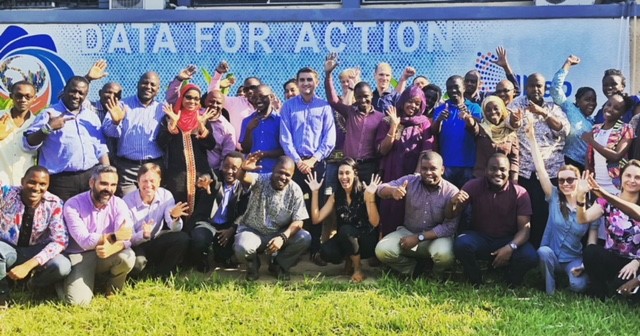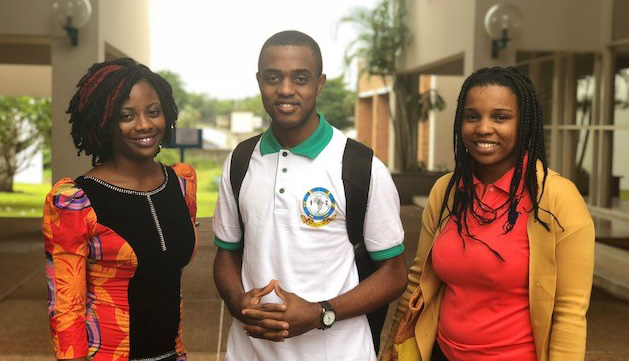
DCLI
DCLI uses data to fuel innovations, engage youth and spark a data revolution to improve health and contribute to economic growth.
In 2015, MCC and PEPFAR created the Data Collaboratives for Local Impact (DCLI) program to help achieve sustainable HIV epidemic control and build upon their respective strengths. PEPFAR needed ways to boost the skills of key stakeholders—such as ministry of health staff, implementation partners, community workers and even beneficiaries—to better understand what their health data means and contribute to local evidence-based strategies to end HIV/AIDS. MCC had a proven model of using country ownership for sustained impact and well-integrated gender policies that could complement PEPFAR’s work, and we were ready to explore how the use of data could further enhance our partner countries’ roles in making the most of investments funded by U.S. taxpayers.
We put our partnership to work in Tanzania to unleash the power of data against HIV/AIDS, and our efforts have produced some tangible results. Those successes in Tanzania are now informing the recently expanded program in Côte d'Ivoire. MCC signed a $524.7 million compact with the Ivorian government last year, and our program will work to leverage the synergies from that existing relationship to boost positive outcomes.

DCLI
Students attending ENSEA (National School of Statistics and Applied Economics in Cote d’Ivoire) where they have access to valuable training offered by Sejen, a data analytics consultancy.
- Skills among important PEPFAR stakeholders are being increased: More than 1,700 individuals, largely from the health sector, have been trained and the vast majority report greater capacity to use data. Nearly 1,300 organizations, many of whom are PEPFAR implementation partners, have been engaged and share more data, and a network of about 1,200 local innovators are actively contributing innovations to the PEPFAR program.
- Tanzanians are using these skills and data to improve lives and help end AIDS: Using data and predictive analytics, one innovator is able to predict where girls are likely to drop out of school, an important risk factor that increases their chances of contracting HIV/AIDs. Another data-driven tool makes it possible for men and women to check the availability of medicine in their communities before going to a particular pharmacy that may not have what they need, reducing wait times from about four hours to less than two hours. Most recently, detailed maps created with communities in a PEPFAR priority district were shared with KIHUMBE, a frontline PEPFAR partner in southwestern Tanzania, enabling this NGO to more effectively connect vulnerable populations to services and propose optimal HIV testing locations to ensure that more people get tested.
- A future supply of Tanzanian data scientists is assured: Because DCLI activities generated so much interest among students and youth, the University of Dar Es Salaam launched the first Masters in Data Science in East Africa in collaboration with the Tanzania Data Lab. Since then, the University of Virginia Data Science Institute has signed an agreement to support this exciting endeavor.

Data Zetu, DCLI
In June 2018, DCLI witnessed how data and fashion can change mindsets and improve lives at the Data Khanga Design Challenge at Tanzania's first Data Khanga Fashion Show.
MCC’s partnership with PEPFAR has started a movement of data ambassadors who are empowered with the skills to use data to improve their lives and their communities. Data and technology are more than just numbers and information highways—they can promote efficiency, transparency and accountability; empower youth and underserved communities; and enable better access to services like health and education while boosting employment prospects in the growing digital economy. PEPFAR’s partnership with MCC is harnessing the power of the data revolution to increase local impact, and we are just getting started.

